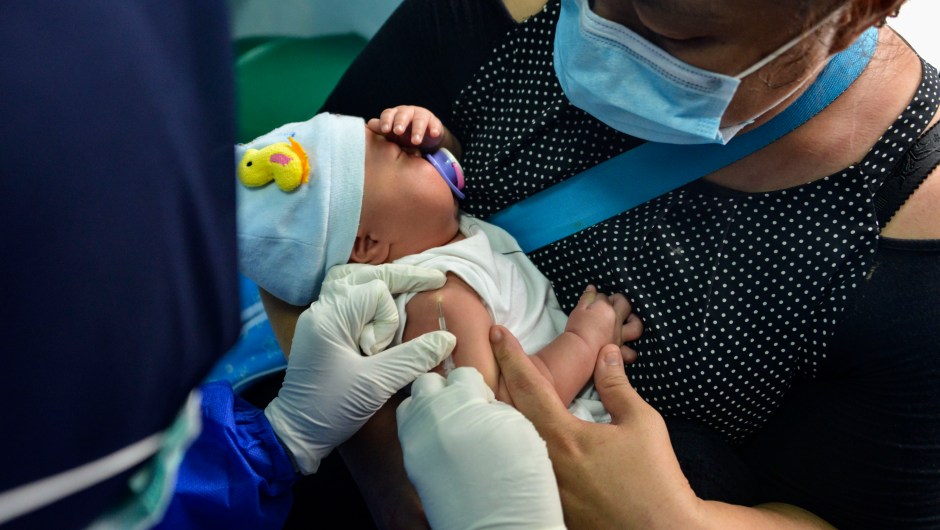(CNN Spanish) - Less than 1% of children under the age of five had chronic hepatitis B in 2019, according to estimates by the World Health Organization (WHO). However, the interruption in vaccinations due to the coronavirus pandemic and a slow recovery from prevention programs could lead to, in the worst case scenario, 5.3 million new chronic infections of the virus and one million deaths. in children born between 2020 and 2030.
In the framework of the World Hepatitis Day that is celebrated every July 28, the WHO said that the coronavirus "threatens to hinder the progress made in the elimination of the hepatitis B virus" and explained that Imperial College London has made in collaboration with the organization, a study to determine what would be the impact of the brake on vaccination programs.
Vaccination of newborns is essential since, according to the WHO, 90% of babies who become infected in the first year of life are chronic carriers of hepatitis B. Today there are more than 250 million people with the virus and this causes the death of approximately 900,000 each year. Babies should ideally receive the first dose of the vaccine in their first 24 hours of life, and later should receive at least two other doses. According to the WHO, the vaccine provides "more than 95% protection".
According to the body's studies, if the doses at birth and during childhood are interrupted by 60% and 20% respectively for a year and there is a "slow delay and recovery in the expansion of the vaccination program" after the pandemic of coronavirus, millions of children will suffer the consequences. The organization warns: "The opportunities lost at the moment to prevent new HBV (hepatitis B) infections will have long-term and life-long effects."
Currently, hepatitis kills more people in America than malaria, turberculosis and HIV combined, according to data from the Pan American Health Organization.
The chiaroscuros of the vaccine
According to the WHO data, in 2019 the coverage of the three doses of the vaccine in childhood reached 85%, a large increase compared to the 30% registered in 2000. In part this was due to work from the Gavi Vaccine Alliance, which is now also involved in the debate on the production and distribution of the coronavirus vaccine.
- MIRA: PAHO recalls historical problems in vaccine distribution and works to reach Latin America
However, when looking at data on the first dose in the 24 hours after delivery, the picture is less optimistic and reflects strong geographic inequality. Worldwide, coverage after birth is 43%. The figure drops to 34% in the Eastern Mediterranean region and plummets to 6% in the African region.
To protect children, the WHO also recommends systematic tests to detect the existence of this virus (and also HIV and syphilis) in early stages of pregnancy and that antiviral treatment be given to women who need it. Currently only 10% of people with hepatitis B know they are infected.
Encouraging results
The WHO estimates that in 2019 less than 1% of children under the age of five had chronic hepatitis B, compared to 5% before the vaccine was incorporated, between the 1980s and the early 2000s.
The results are especially encouraging in the Americas, which according to WHO is "the region of the world with the lowest prevalence of chronic infection." "It is estimated that in 30 years the region managed to reduce the prevalence of hepatitis B in children under 5 years of age from 0.7% to less than 0.1%, an average that today stands at 0.9% worldwide" , explains the UN.
PAHO is concerned that routine immunizations have recently declined in some countries. The vaccine - as well as the tests and antiviral treatments at times - is essential to stop the spread of the disease and that is why Dr. Tedros Adhanom Ghebreyesus, WHO Director General, affirms: “The most important strategy to fight this disease and saving lives is preventing mother-to-child transmission. Even in the midst of the covid-19 pandemic, we must ensure that mothers and newborns have access to life-saving resources such as vaccination against hepatitis. ”
coronaviruscovid-19

